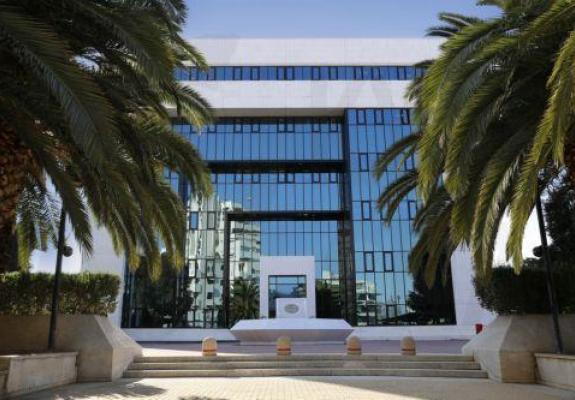Parliamentary Committee discusses abolishment of the €350 fee on companies
The Parliamentary Committee on Energy, Commerce, and Industry is currently working on a solution regarding the €350 fee on companies. The Committee’s objective is to draft legislation, ahead of the plenary vote and before the summer recess, which will either completely abolish or gradually phase out this specific fee.
During today's session, five legislative proposals were discussed, presented by Members of Parliament. The Ministry of Finance requested additional time to incorporate the fee's abolition into the broader tax reform currently under development.
Following the committee meeting, Chairman Kyriakos Hadjiyiannis of the DISY party, expressed his view that this fee, which originated from the memorandum’s strict fiscal measures and was temporarily implemented, should have been abolished at some point. He argued that it serves as an unjust burden on businesses, offering no contribution to their productivity, thus the fee defies logic.
While acknowledging that this fee generates approximately €45 million in revenue for the state, he emphasized that, within the framework of the tax reform, this unjustifiable fee should be lifted. Instead, a new tax policy should be pursued, aiming to replenish the state's revenues with minimal increases, potentially removing Cyprus from blacklists.
He urged the new government to promptly present a proposal outlining its position and how it plans to compensate for the loss of this revenue. However, he added that the committee would adhere to a timeline and expressed hopes that the abolition of the €350 fee could be voted on before the summer closure of the Parliament.
AKEL MP, Kostas Kostas, criticized the previous government for playing games for five years by failing to propose the abolition of this specific fee before the Parliament. He noted that during today's session, the representatives of the Ministry of Finance reiterated their disagreement with the fee's abolition. Furthermore, he added that representatives from the Ministry of Commerce and the Department of Company Registrar, despite being invited, did not attend the session. Mr. Kostas stated that POVEK, SELK, KEVE, and the Cyprus Bar Association agreed with the fee's abolition, while the Legal Service is about to provide legal opinions on the legislative proposals.

DIPA-Cooperation Party MP, Michalis Giakoumi, referred to the different financial conditions prevailing at the time the fee was introduced. He highlighted that the fee was not part of a tax policy but rather an extraordinary charge, which all parties agree should be abolished. He disagreed with the proposal for a phased implementation of the fee and expressed support for its complete elimination.
He clarified that any abolition currently discussed would affect the 2024 budget. He noted that the Tax Commissioner had stated that this amount is negligible in terms of the state's budget and that alternative measures need to be examined to compensate for its abolishment.
In an effort to facilitate non-profit organizations, whose turnover does not exceed €30,000, a proposal was made to exempt them from the obligation to submit annual financial reports to the Company Registrar and to pay the annual fee of €350.
The purpose of this proposal, Giakoumi explained, is to support the seamless operation of non-profit organizations and their philanthropic, cultural, or other activities. Furthermore, a proposal was submitted concerning inactive companies that do not engage in transactions and are not registered in the tax records.
Stavros Papadouris, MP of the Green Party, stressed the need to differentiate between the economic circumstances prevailing at the time the fee was introduced and the present situation. He emphasized that this fee, as it stands, does not align with sound tax policy. Papadouris advocated for its complete abolition and disagreed with proposals for a phased implementation.
He made it clear that any proposed abolition would only apply to the 2024 budget and stressed that small businesses are facing challenging times and would be burdened by the fee.
It is worth noting that the Ministry of Finance requested additional time to incorporate this proposal into a broader tax reform. However, “the Ministry needs to be aware that if it doesn’t present the reform within the next 1-2 weeks, the Committee will proceed with the legislative proposal before the Parliament goes on summer recess,” Mr. Papadouris concluded.






